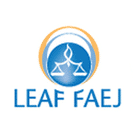26 February 2015
An alarming study released today shows that governments in Canada have repeatedly ignored expert recommendations to stop violence against Indigenous women and girls.
Researchers with the Legal Strategy Coalition on Violence Against Indigenous Women reviewed 58 reports dealing with aspects of violence and discrimination against Indigenous women and girls, including government studies, reports by international human rights bodies, and published research of Indigenous women’s organizations. The reports cover a period of two decades. Shockingly, researchers found that only a few of more than 700 recommendations in these reports have ever been fully implemented.
“How many Indigenous women and girls would have been found or would still be alive if governments had acted on more of these recommendations?” asked Grand Chief Stewart Phillip, President of the Union of BC Indian Chiefs. “This is yet another piece of irrefutable evidence that governments in Canada have breached their fundamental moral and legal responsibility to ensure the safety of all women, without discrimination.”
The reports examined in this study include 40 listed by Federal Justice Minister Peter MacKay as evidence of why a national public inquiry into missing and murdered Indigenous women is not needed.
“The federal government has gotten it all wrong,” said Cheryl Maloney, President of the Nova Scotia Native Women’s Association. “The fact that governments have been sitting on these reports, leaving important, life-saving recommendations unimplemented, is exactly why we need the intervention of an independent commission of inquiry.”
“A national inquiry is needed to examine why there has been so much resistance by successive governments to implementation of known and recommended measures to address the issue”, noted LEAF Legal Director Kim Stanton.
Christa Big Canoe, the Legal Director of Aboriginal Legal Services of Toronto said, “A properly established inquiry, backed by a clear commitment by government to act on its findings, would provide the kind of accountability to the public that we so sorely lack.” She also stated, “Families of missing and murdered women need to have a hand in the creation of an inquiry process and most importantly in establishing the mandate of an inquiry to ensure that the voices of the survivors is heard throughout the whole process, from the beginning to the implementation of recommendations or findings.”
The coalition study found broad consensus among the reports that the root causes of the high levels of violence against Indigenous women and girls lie in a history of discrimination beginning with colonization and continuing through laws and policies such as the Indian Act and residential schools.
“This history laid the foundations for pervasive violence and created the risks Indigenous women face today,” says Sharon McIvor of the Canadian Feminist Alliance for International Action. “In this way, the reports directly refute the claim made by the federal government that this is a matter of individual crimes, not a ‘social phenomenon’.”
“Better policing and community safety measures are important, but they’re not the whole picture,” said Alex Neve, Amnesty International Canada. “We need to address the root causes that put Indigenous women and girls in harm’s way. Unfortunately, despite the analysis set out in all these reports, the federal government still maintains that historical facts and broad sociological patterns can be dismissed and ignored.”
Aimée Craft (Mikinaak Ikwe), Indigenous law professor and lawyer, Treaty One, said, “In Winnipeg, our young indigenous women and girls are still disappearing and being victimized. The information and recommendations that have been gathered to date have not prevented further harm against us. We need a commitment to act and an Inquiry process that will give voice to our social circumstances and the hope that we can live good and safe lives.”
Mary Teegee, Executive Director, Child and Family Services, Carrier Sekani Family Services said, “Our ultimate goal is to have in place the kind of comprehensive, well-informed and well-resourced national action plan that’s needed to stop the violence. But as this study makes clear, we’re not going to get there unless there’s some way to hold governments more accountable.”
The study was endorsed by the following individuals and organizations which are members of the Legal Strategy Coalition:
Aboriginal Legal Services Toronto
Amnesty International Canada
Canadian Association of Elizabeth Fry Societies (CAEFS)
Canadian Feminist Alliance for International Action (FAFIA)
Carrier Sekani Family Services
Law Office of Mary Eberts
Constance MacIntosh, Director, Dalhousie Health Law Institute, Associate Professor, Schulich School of Law, Dalhousie University
Nova Scotia Native Women’s Association
Kim Pate, Sallows Chair in Human Rights – Faculty of Law, University of Saskatchewan
Union of British Columbia Indian Chiefs
Women’s Legal Education and Action Fund (LEAF)
West Coast LEAF
An executive summary of the report is here.
The full report analysing the implementation of past recommendations is here.
A spreadsheet summarizing the previous reports is here.
A list of the recommendations contained in the previous reports is here.
For more information, please contact:
Cheryl Maloney, President, Nova Scotia Native Women’s Association, 902-751-0077
Coola Louis, Women’s Representative, Union of British Columbia Indian Chiefs, 250-306-6191
Kim Stanton, Legal Director, Women’s Legal Education and Action Fund (LEAF), 416-595-7170 x 223, [email protected]
Pippa Feinstein, co-researcher with Megan Pearce, [email protected]


